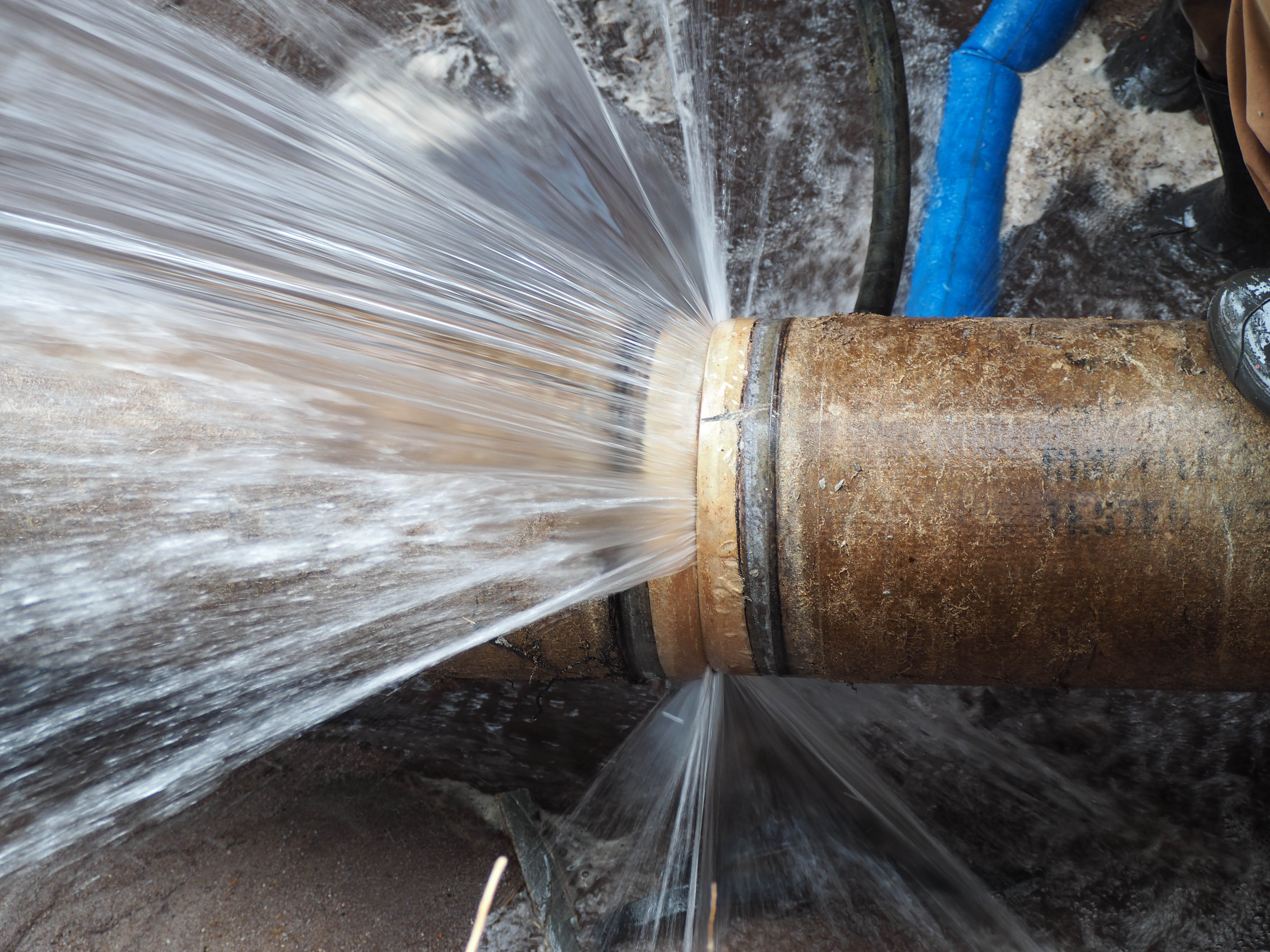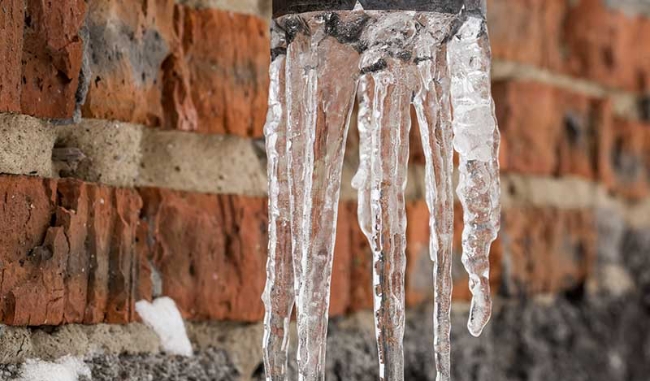Tips to Keep Pipes from Cold Weather Damage: Crucial Advice
Suggested SiteWe've stumbled on the article about How To Avoid Freezing Pipes listed below on the web and figured it made perfect sense to talk about it with you here.

Cold weather can wreak havoc on your pipes, specifically by freezing pipelines. Here's just how to avoid it from happening and what to do if it does.
Intro
As temperatures decline, the danger of frozen pipes increases, potentially leading to expensive fixings and water damages. Recognizing exactly how to prevent icy pipes is important for property owners in chilly environments.
Prevention Tips
Insulating prone pipelines
Cover pipes in insulation sleeves or make use of warm tape to shield them from freezing temperature levels. Concentrate on pipes in unheated or outside areas of the home.
Home heating methods
Keep indoor spaces adequately heated up, particularly areas with pipes. Open up cupboard doors to enable warm air to circulate around pipes under sinks.
How to recognize frozen pipes
Search for reduced water flow from faucets, uncommon smells or sounds from pipelines, and noticeable frost on exposed pipes.
Long-Term Solutions
Architectural changes
Think about rerouting pipelines far from exterior walls or unheated locations. Add extra insulation to attic rooms, cellars, and crawl spaces.
Updating insulation
Buy high-grade insulation for pipes, attics, and walls. Correct insulation aids maintain constant temperatures and lowers the danger of frozen pipelines.
Shielding Outdoor Plumbing
Garden hose pipes and exterior faucets
Detach and drain garden hose pipes prior to winter. Install frost-proof faucets or cover exterior taps with protected caps.
Recognizing Frozen Pipelines
What triggers pipes to freeze?
Pipes ice up when revealed to temperatures listed below 32 ° F (0 ° C) for prolonged periods. As water inside the pipelines freezes, it expands, taxing the pipe walls and potentially creating them to rupture.
Threats and problems
Icy pipes can lead to water system disruptions, building damages, and expensive repair work. Ruptured pipes can flooding homes and create comprehensive architectural damage.
Indicators of Frozen Water Lines
Recognizing icy pipes early can avoid them from breaking.
What to Do If Your Pipes Freeze
Immediate activities to take
If you think frozen pipes, maintain faucets available to ease stress as the ice thaws. Use a hairdryer or towels soaked in hot water to thaw pipes slowly.
Verdict
Protecting against icy pipes calls for proactive measures and quick actions. By understanding the causes, signs, and preventive measures, homeowners can shield their plumbing during cold weather.
Helpful Tips to Prevent Frozen Pipes this Winter
UNDERSTANDING THE BASICS: WHY PIPES FREEZE AND WHY IT’S A PROBLEM
Water freezing inside pipes is common during the winter months, but understanding why pipes freeze, and the potential problems it can cause is crucial in preventing such incidents. This section will delve into the basics of why pipes freeze and the associated problems that may arise.
THE SCIENCE BEHIND FROZEN PIPES
When water reaches freezing temperatures, it undergoes a physical transformation and solidifies into ice. This expansion of water as it freezes is the primary reason pipes can burst. As the water inside the pipe freezes, it expands, creating immense pressure on the walls. If the pressure becomes too great, the pipe can crack or rupture, leading to leaks and water damage.
FACTORS THAT CONTRIBUTE TO PIPE FREEZING
Low Temperatures: Extremely cold weather, especially below freezing, increases the risk of pipes freezing. Uninsulated or Poorly Insulated Pipes: Pipes located in unheated areas, such as basements, crawl spaces, or attics, are more prone to freezing. Insufficient insulation or lack of insulation altogether exacerbates the problem. Exterior Wall Exposure: Pipes running along exterior walls are susceptible to freezing as they encounter colder temperatures outside. Lack of Heating or Temperature Regulation: Inadequate heating or inconsistent temperature control in your home can contribute to frozen pipes. PROBLEMS CAUSED BY FROZEN PIPES
- Pipe Bursting: As mentioned earlier, the expansion of water as it freezes can cause pipes to burst, resulting in significant water damage.
- Water Damage: When pipes burst, it can lead to flooding and water damage to your property, including walls, ceilings, flooring, and personal belongings.
- Structural Damage: Prolonged exposure to water from burst pipes can compromise the structural integrity of your home, leading to costly repairs.
- Mold and Mildew Growth: Excess moisture from water damage can create a favorable environment for mold and mildew growth, posing health risks to occupants.
- Disrupted Water Supply: Frozen pipes can also result in a complete or partial loss of water supply until the issue is resolved.
WHY CERTAIN PIPES ARE MORE PRONE TO FREEZING
- Location: Pipes located in unheated or poorly insulated areas, such as basements, crawl spaces, attics, or exterior walls, are at higher risk of freezing.
- Exterior Pipes: Outdoor pipes, such as those used for irrigation or exposed plumbing, are particularly vulnerable to freezing as they are directly exposed to the elements.
- Supply Lines: Pipes that carry water from the main water supply into your home, including the main water line, are critical to protect as freezing in these lines can affect your entire plumbing system.
- Underground Pipes: Pipes buried underground, such as those connected to sprinkler systems or outdoor faucets, can be susceptible to freezing if not properly insulated.
https://busybusy.com/blog/helpful-tips-to-prevent-frozen-pipes-this-winter/

Do you enjoy reading about Prevent Frozen Pipes ? Write feedback directly below. We would be glad to hear your views about this blog posting. Hoping that you visit us again in the future. Enjoyed our content? Please quickly share it. Help other people check it out. Thank-you for your time invested reading it.
Request A Quote